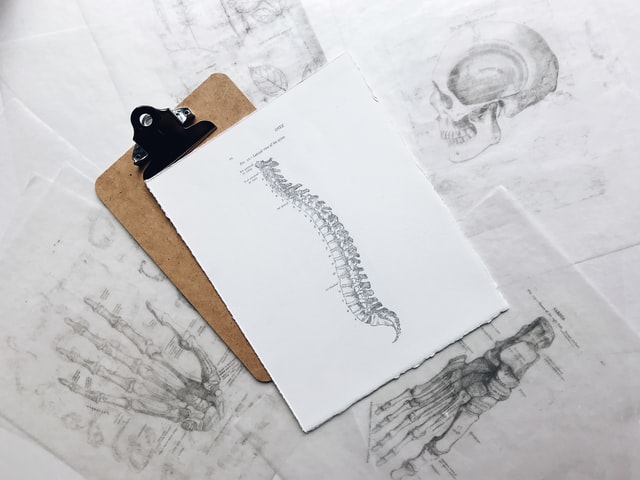The Chiropractic profession
What is Chiropractic?
As a paramedical, or alternative, service provider, Chiropractors have become more popular and more mainstream over the years. Many people have tried Chiropractic to alleviate physical ailments, like lower back pain or knee pain. I have worked with various Chiropractors for the past three decades, addressing everything from neck pain, knee pain, a sore back, to lock-jaw, headaches, and my broken foot.
My journey started off after a car accident, where a chiropractor was the saving grace for my neck injury. This happened by chance because no other provider was available on an emergency basis that day and I was not a fan of hospitals.
I was so pleased with the treatments that from then on, everything included a chiropractor. And I have to say that I have not been disappointed.
On the podcast, I recently spoke with Dr. Jennifer Dotto, who has been a practicing Chiropractor for over 17 years. Not only has she used her own skills to work through the grief of her divorce, but also the skills and talents of many of her holistic healing colleagues.
“The nervous system holds the key to the body’s incredible potential to heal itself.”
- Jay Holder, D.C.
Can Chiropractic help not just with physical problems, but also with mental health and wellbeing? This is an interesting question I wanted to know more about. How does Chiropractic affect us and how can it be integrated into our holistic healing journey?
How are Chiropractic and mental health connected?
During my research for this article, I came across some very interesting information. D.D. Palmer founded the chiropractic profession over a century ago. He figured out that when vertebrae shifted ever so slightly, it was enough to pinch a nerve and affect its function. This pinched nerve could actually affect brain function to the point of causing mental illness. D.D. Palmer, in essence, discovered that a pinched nerve could be the reason for mental illness (he called it insanity at the time).
Following this discovery, in the 1920s, some mental health facilities incorporated chiropractic treatment into their care protocols. Two of those facilities, in Iowa, actually doubled their cure and discharge rate because of this addition. Unfortunately, the facilities eventually closed due to financial issues. Insurance companies did not want to pay for chiropractic treatment, as it was considered alternative rather than medical.

A 1997 study found a strong connection between the Network Spinal chiropractic technique and patients reporting improved health and wellness. Studies have also shown a significant connection between chiropractic care and lower depression and anxiety scores. It seems that chiropractic care can affect neuroplasticity, which in turn directly affects the body’s neurobiology in a positive way. Further research has also indicated that a pinched nerve can even affect and change the autonomic nervous system’s activity.
Some symptoms of an altered autonomic nervous system could include higher heart rate, multiple sclerosis, eating disorders, burnout, depression, chronic PTSD, memory issues, inflammation, type 1 diabetes, and more. All because of a pinched nerve. I am so impressed that Palmer already figured this out in the late 1800s!
Issues with Chiropractic care
One of the main issues with chiropractic care definitely includes finances. Most insurance companies do not pay for visits, as they are not considered medical treatments. Some private insurance plans include a paramedical portion, which is usually split between all alternative modalities, like acupuncture, massage, etc. In that case, you could at least get some visits covered each year.
Another challenge is the fact that many conventional medical providers do not refer patients to alternative service providers. Part of this is possibly how allopathic medical providers were trained. Another part may be their own beliefs about alternative and complementary medical providers. Some simply do not take alternative methods seriously. Others may even think that it could legitimately harm their patients. This could be linked to a lot of misinformation floating around or even no education provided on the topic.

And that could be another reason why people are hesitant to try alternative providers. They may have heard something scary from a relative or friend (or on the Internet). Unfortunately, there is a lot of misinformation circulating about alternative providers. Many people do not know about the scientific studies supporting a lot of the treatments. Sometimes, the exact method of treatment is a bit of a mystery and might scare you off. In any case, Getting proper information and even going to visit a provider can be very helpful.
And finally, I think geographic location could be an issue as well. If you live in a city, chances are you will have several chiropractors to choose from. If you live rurally that might not be the case. And you may not have the transport means to go to the next city and book an appointment. Unfortunately, chiropractic visits cannot be done virtually, so you will need to book an in-person appointment. All that could make it difficult to decide to visit a chiropractor. But, if you have the availability and the means to go there, it could be a great thing to try out.
The Takeaway
It is surprising to find out that chiropractic care can affect our neurobiology. People usually see a chiropractor for a sore back or neck. But, helping with mental health and wellbeing is one of the (maybe) unknown side effects of chiropractic treatment. The effect of a pinched nerve can be so severe that it affects our brain function.
I find chiropractic sessions to be gentle and painless. They have been a wonderful addition to my holistic healing journey. But, make sure you work with a reputable chiropractor. If you feel in any way unsafe or don’t like the treatment, choose a different chiropractor to work with. You will likely find someone you love working with.

Taking care of our body and our mind is a holistic journey and chiropractic sees it that way too.
I have worked with Chiropractors in several different countries and there seem to be fantastic ones everywhere. It just takes a little bit of testing out. Often, the recommendations online can be helpful if you are visiting somewhere unfamiliar and need a chiropractor.
Next time you reach for a pain pill, maybe consider giving a Chiropractor a call.
Sources
Kent C (2018) Chiropractic and Mental Health: History and Review of Putative Neurobiological Mechanisms. Journal of Neurology, Psychiatry and Brain Research: JNPB-103. https://www.researchgate.net/publication/326925849
https://thejornipodcast.com/episode-10-chiropractic-and-supporting-women-healers-with-dr-jennifer-dotto
